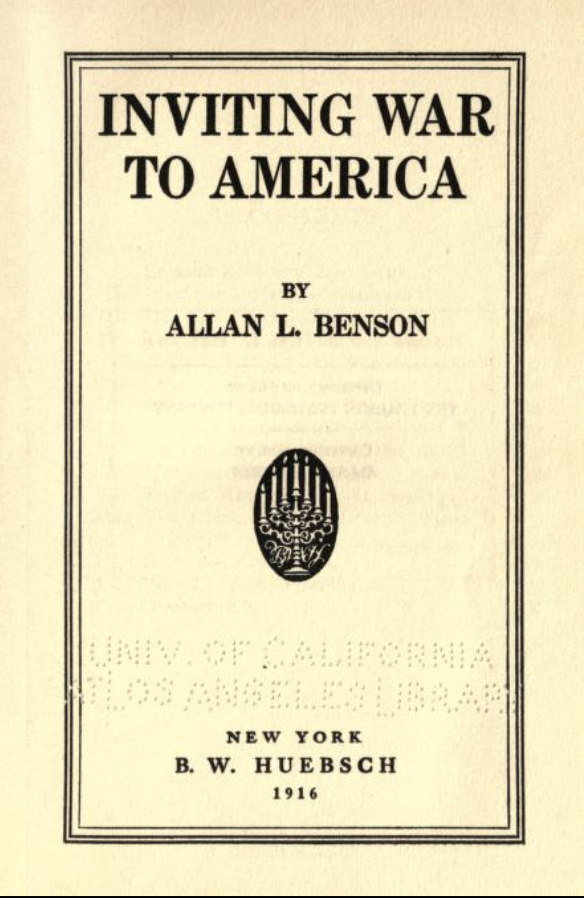The idea of books posing a risk to health as a contagion held a metaphorical power as well. On July 31, 1918, the War Department issued the first of several lists of books it banned from the Library War Service.
Censorship of pro-German and pacifist books met little pushback within the Library War Service.
Librarians noted books to be pulled from shipments to military libraries in their internal records, and offered specific reasons for their decisions in handwritten memos on the typescript lists.
Here are some examples from Library War Service records. The quotations represent handwritten comments that explain the necessity of censorship in each case:

- Allan Benson. Inviting War to America. 1916. “Arguments against preparedness coupled with personal attacks, bitter arguments against capitalism and propaganda for the socialist cause.”
- Ernesta Drinker Bullitt. An Uncensored Diary from the Central Empires. Doubleday, 1917. “Have received one letter from a librarian protesting against this as pro-German.”
- John Burgess. America’s Relations to the Great War. “Says the danger in this war is from the combination of the four great colonial empires and that they ‘will if hang together bring all the west into subjection.’”
- J.K. McGuire. The King, the Kaiser & Irish Freedom. Devin Addir, 1915. “Written by an American who favors German cause – emphasizing G’s friendship for Ireland and what G. can do for Ireland.”
Pro-German views, pacifist arguments, and books that offered sympathy to the colonies seeking independence from America’s allies in the war all posed a danger to the health of the nation. What if servicemen questioned the war?
Ironically, when American newspapers reported the censorship within the Library War Service, some critics responded by arguing that censorship itself was the more dangerous contagion to the health of the nation, not the contents of the so-called dangerous books.
“The deadly censorship fever spreads more rapidly in war time than any other mental disease, and America is especially subject to it,” an editorial in the Detroit News noted. “In peace days our national literature was puritanized and mollycoddled practically out of existence by the Comstockery of the post office department and the public libraries,” the writer noted referencing earlier censorship laws. “Now the camp libraries are threatened by the same malady. It is more important that they be saved from it than that some notion of democracy be injected into the municipal libraries.”
Censorship and forced patriotism would not inoculate the nation from the dangers of war, this editorial argued, they instead posed a threat to democracy.
The stakes of censoring reading among the troops during the war created questions about the terms of American democracy, and of freedom of speech. If World War I was fought to “make the world safe for democracy,” who would fight to keep the library safe for reading?
Librarians serving in the War Service were well- aware of the perceived notion that books could be contagious, both materially and metaphorically. They also knew first-hand that books held real therapeutic power which they were eager to harness and apply to their work in their own communities. Returning home, these librarians felt inspired to create a new “science” of bibliotherapy, transforming their library shelves into medicine cabinets to treat the patients under their care.